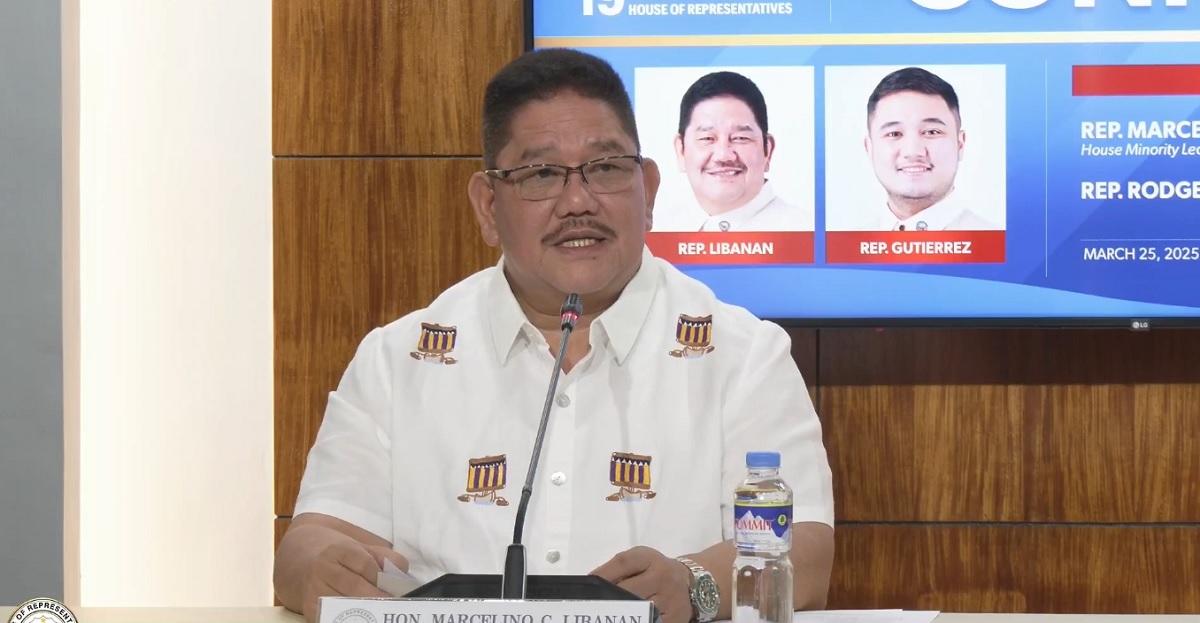House leaders maintained that a snap election – proposed due to loss of trust in the country’s leaders – is only possible if the 1987 Constitution is amended to allow it.
This was the position expressed after a senator suggested that lawmakers from both chambers of Congress, the President and Vice President resign to allow the conduct of a snap election.
The proposal – which would exclude the aforementioned officials from running – is needed amid the public’s loss of trust in public officials and corruption in flood control and infrastructure projects.
Asked if the position is legal given that such conditions for holding a snap election are not provided in the 1987 Constitution, the official simply said that “it is not in the Constitution.”
“What is in the Constitution is a constitutional convention, constituent assembly, or people’s initiative. We can change the Constitution and we can use the new Constitution as basis in electing our officials,” the official said, referring to the modes of amending the Charter.
The official then floated the possibility of amending the Charter to introduce “genuine electoral reforms” that the Philippines needs.
“This might be the right time to call for a constitutional convention or constituent assembly to amend our Constitution because there are things that we need to change. It’s not just about elections, but genuine electoral reforms that the country needs, like on campaign spending of politicians. We need a reboot and start things on the right foot,” he said.
Earlier, the Commission on Elections said it cannot conduct snap elections without a law allowing it.
The election commission chair said there is no provision for snap elections under the country’s laws and the 1987 Constitution.
Another official reminded colleagues that lawmakers should not be lawbreakers because public office is a public trust and that they should show Filipinos that they are worthy of their votes.
He agreed that snap elections are not provided for under the law and that amendments should be made first.
For now, the official stressed that regaining Filipinos’ trust should begin with passing a national budget that is responsive to the people’s needs.
“We lawmakers should work to craft the budget and ensure that it is spent right and responds to our countrymen’s needs,” he said.
1987 Constitution
The “1987 Constitution” refers to the current supreme law of the Philippines, ratified on February 2, 1987. It was drafted following the peaceful People Power Revolution of 1986, which ousted the authoritarian regime of Ferdinand Marcos. The constitution is notable for re-establishing a democratic government, limiting presidential power, and emphasizing civil liberties and human rights.
Constitution
“Constitution” most famously refers to the USS Constitution, a historic wooden-hulled frigate of the United States Navy. Launched in 1797, it earned the nickname “Old Ironsides” during the War of 1812 after cannonballs were seen bouncing off its strong live oak hull. It remains the world’s oldest commissioned naval vessel still afloat, serving as a museum ship in Boston.
constitutional convention
A constitutional convention is a gathering of delegates assembled to draft or revise a foundational governing document, such as a constitution. A prominent historical example is the 1787 Philadelphia Convention, where delegates from the American states drafted the United States Constitution to replace the earlier Articles of Confederation. These conventions are pivotal events that establish the fundamental principles and structure of a government.
constituent assembly
A constituent assembly is a body of representatives convened to draft or adopt a constitution for a nation. Historically, such assemblies have been pivotal during times of political transition, such as after a revolution or the founding of a new state, to establish a country’s fundamental laws and principles. Notable examples include the French Constituent Assembly of 1789 and India’s Constituent Assembly, which drafted its constitution after independence from British rule.
people’s initiative
“People’s initiative” is not a specific place or cultural site, but a political process. It is a form of direct democracy that allows citizens to propose new laws or amendments by collecting a required number of signatures on a petition. This mechanism is a feature of the political systems in countries like Switzerland and several states in the United States.
Charter
“Charter” typically refers to a foundational document granting rights or establishing an organization, rather than a specific place. However, in a historical context, the Magna Carta (or “Great Charter”) was a royal charter agreed to by King John of England in 1215. It established the principle that everyone, including the king, was subject to the law and laid a foundation for individual rights.
Commission on Elections
The Commission on Elections (COMELEC) is the constitutional commission responsible for enforcing and administering all election laws and regulations in the Philippines. It was established in 1940 to ensure free, honest, and orderly elections in the country. As an independent body, it oversees the entire electoral process, from voter registration to the proclamation of winners.
national budget
A national budget is not a physical place or cultural site, but a government’s financial plan for a given period. It details projected revenues and proposed expenditures for public services, defense, and social programs. Its history is tied to the evolution of modern governance, with a key principle being “no taxation without representation,” establishing legislative control over a nation’s finances.





